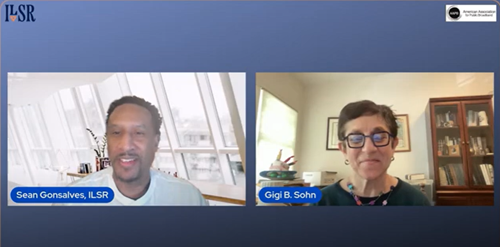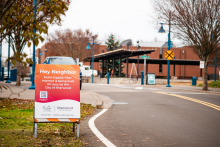Experts Point To The Big ‘Payback’ That Flows From Municipal Broadband Investments
At the “Municipal Broadband and Innovative Financing Models: Unlocking Economic Growth” webinar earlier today, attendees got an inside look at how successful community broadband networks have been funded – and how cities and towns can still finance networks even with the uncertainty now swirling around the federal BEAD program.
Co-hosted by ILSR’s Community Broadband Networks Initiative and the American Association for Public Broadband (AAPB), the webinar featured a wealth of municipal broadband financing knowledge from four guests with deep experience navigating the numbers.
Co-host Gigi Sohn, who was joined by ILSR’s Sean Gonsalves, began the webinar with a brief explanation on why AAPB and ILSR are joining forces for what will be a series of webinars designed to assist cities and towns in how local and state leaders can deal with solving local connectivity challenges where the big incumbent ISPs have failed to deliver ubiquitous and reliable service.

“I've been traveling around the country and I hear from a lot of communities who are very interested in a model where they control their broadband networks in their communities,” she said. “We want to kind of demystify the finance part and try to get communities more comfortable with how they can move forward.”
The first guest expert to take center screen was Ernie Staten, the City of Fairlawn, Ohio’s Public Service Department Director.



